Judicial Appeals: Procedural Irregularities - Legal Appeal Assistance
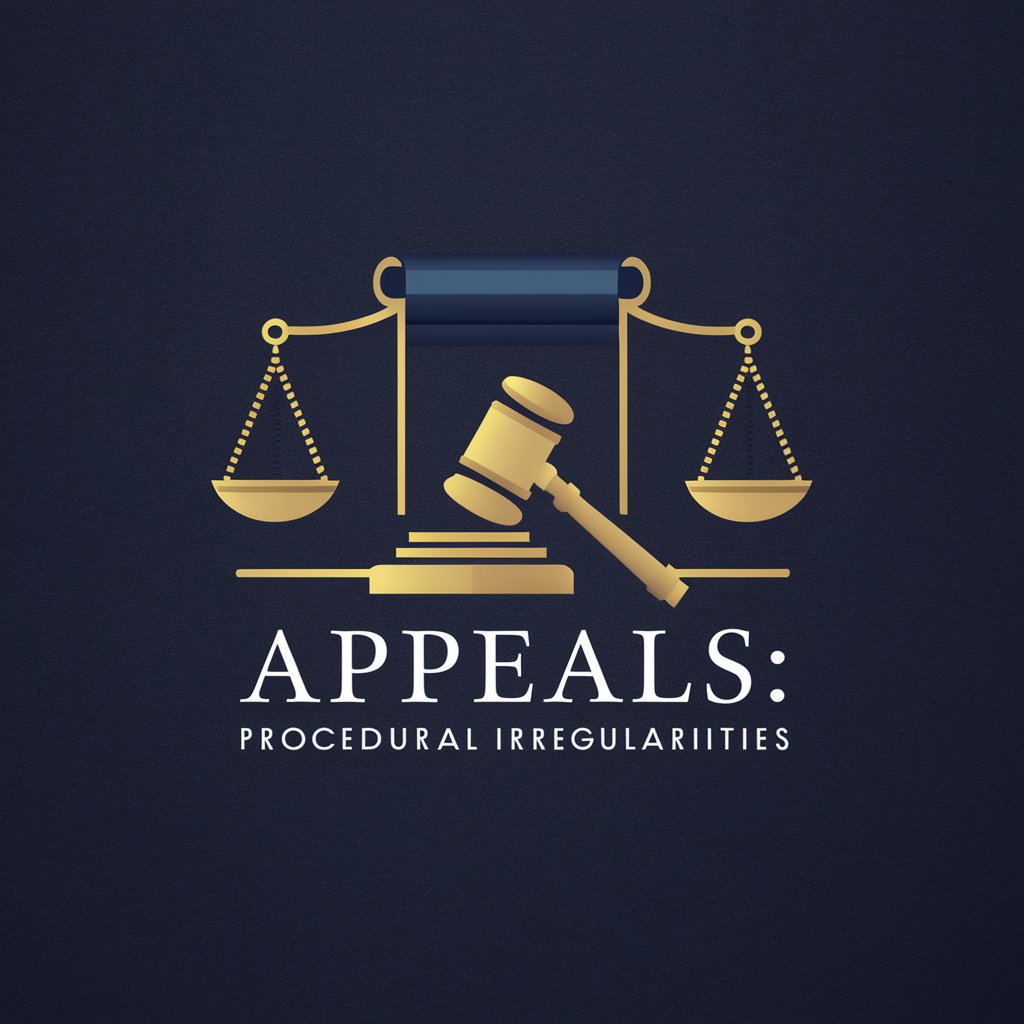
Welcome! Let's tackle your procedural irregularity appeal.
AI-powered guide to challenging procedural errors
Explain the importance of identifying specific procedural rules or standards violated in legal appeals.
Describe the steps involved in gathering evidence to prove a procedural irregularity in a court case.
How can one demonstrate the impact of a procedural irregularity on the fairness of legal proceedings?
Outline the process for filing an appeal based on procedural irregularities in the judicial system.
Get Embed Code
Overview of Judicial Appeals: Procedural Irregularities
Judicial Appeals: Procedural Irregularities is designed to assist individuals in challenging judicial decisions where there has been a failure to adhere to the correct legal processes or procedures. This includes instances where court procedures, rules, or standards have not been followed accurately, potentially impacting the fairness and outcome of legal proceedings. For example, if a trial did not allow for the proper presentation of evidence, or if there was a lack of impartiality that could affect the verdict, these could constitute procedural irregularities. The service aims to guide users through the complex process of identifying, proving, and appealing such irregularities, ensuring they understand the necessary legal steps and documentation required. Powered by ChatGPT-4o。

Functions of Judicial Appeals: Procedural Irregularities
Identifying Procedural Irregularities
Example
Analyzing court transcripts to detect deviations from legal standards
Scenario
A lawyer uses the service to pinpoint specific instances in trial records where the judge may have overlooked crucial evidence, affecting the trial's fairness.
Gathering Evidence
Example
Collecting and organizing affidavits and documentary proof
Scenario
An appellant gathers court orders, notices, and correspondence with the help of the service to demonstrate procedural lapses during their trial.
Legal Analysis and Argumentation
Example
Crafting legal arguments to highlight procedural breaches
Scenario
The service assists in comparing the conducted procedures with the legal standard, aiding in constructing a compelling argument for appeal.
Filing Legal Motions
Example
Drafting and submitting appeals or motions for mistrial
Scenario
A user files a motion for retrial, claiming that procedural irregularities compromised the trial's integrity.
Target User Groups for Judicial Appeals: Procedural Irregularities
Legal Professionals
Lawyers and paralegals who need to challenge procedural aspects of a case can benefit from specialized resources and guidance in identifying and proving procedural errors.
Litigants
Individuals involved in legal proceedings who suspect that their case suffered due to procedural failures can use this service to understand and appeal such irregularities.
Legal Scholars and Students
Those studying or researching in the legal field may use the service to explore procedural irregularity concepts, understand real-world applications, and enhance their academic and practical knowledge.

Guidelines for Using Judicial Appeals: Procedural Irregularities
Start Your Journey
Begin by visiting yeschat.ai to access a free trial, with no login or ChatGPT Plus subscription required.
Identify Your Case
Determine the specific procedural rule or standard you believe was violated in your case, using clear and precise terms.
Gather Evidence
Compile all necessary documentary evidence, witness statements, and affidavits that support the occurrence of a procedural irregularity.
Analyze and Prepare
Conduct a detailed comparison of the actual procedure followed versus the required standard, and prepare your legal arguments using precedents.
Seek Legal Advice
Consult with a legal professional for expert advice and guidance to ensure your appeal is well-founded and effectively presented.
Try other advanced and practical GPTs
Judicial Appeals: N161 Forms
Streamlining legal appeals with AI-powered support
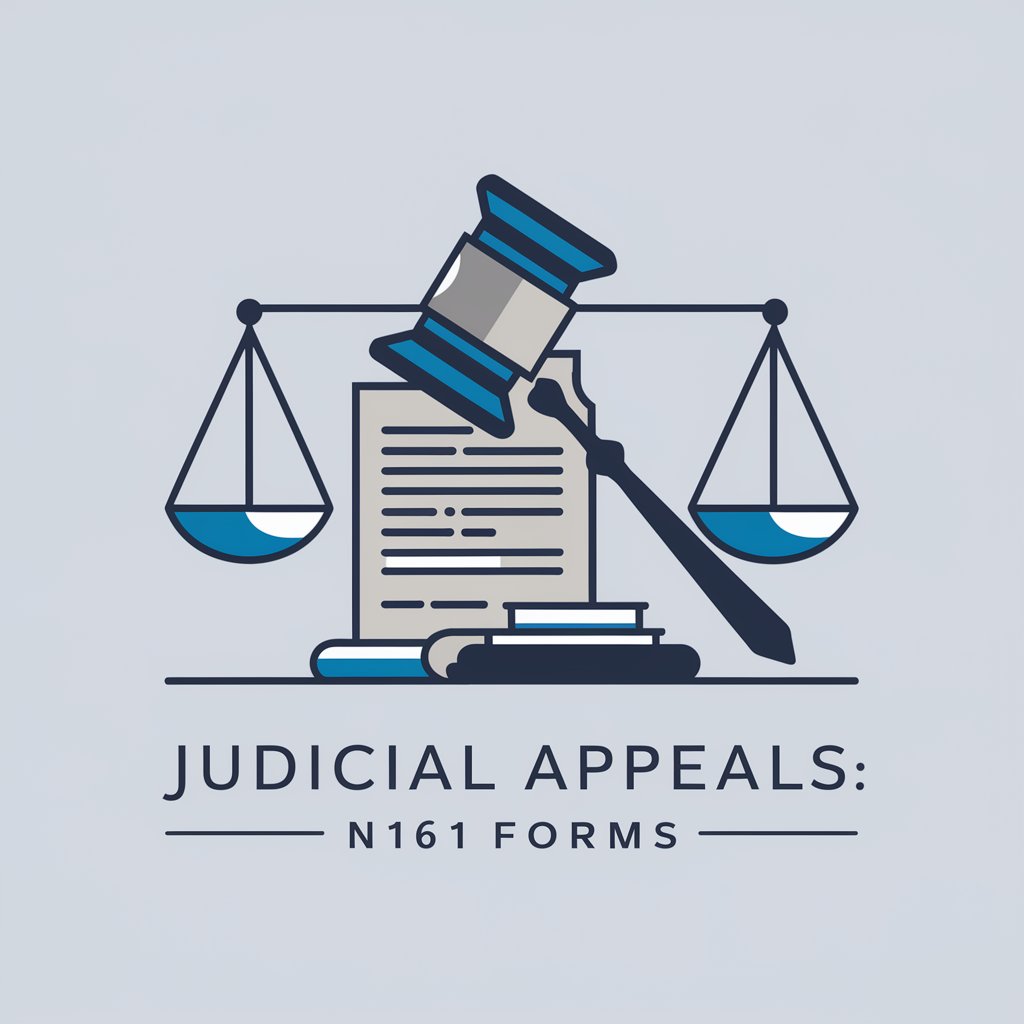
Healthcare Appeals Navigator
Streamlining Healthcare Appeals with AI

Bond Appeal Assistant
Streamlining Dental Insurance Appeals with AI

Bet Master
Empowering Your Bets with AI

Instinct Appeal Marketing
Harnessing Human Instincts for Ethical Marketing

Ask a BC Assessment Appeals Expert
Empowering BC property appeals with AI
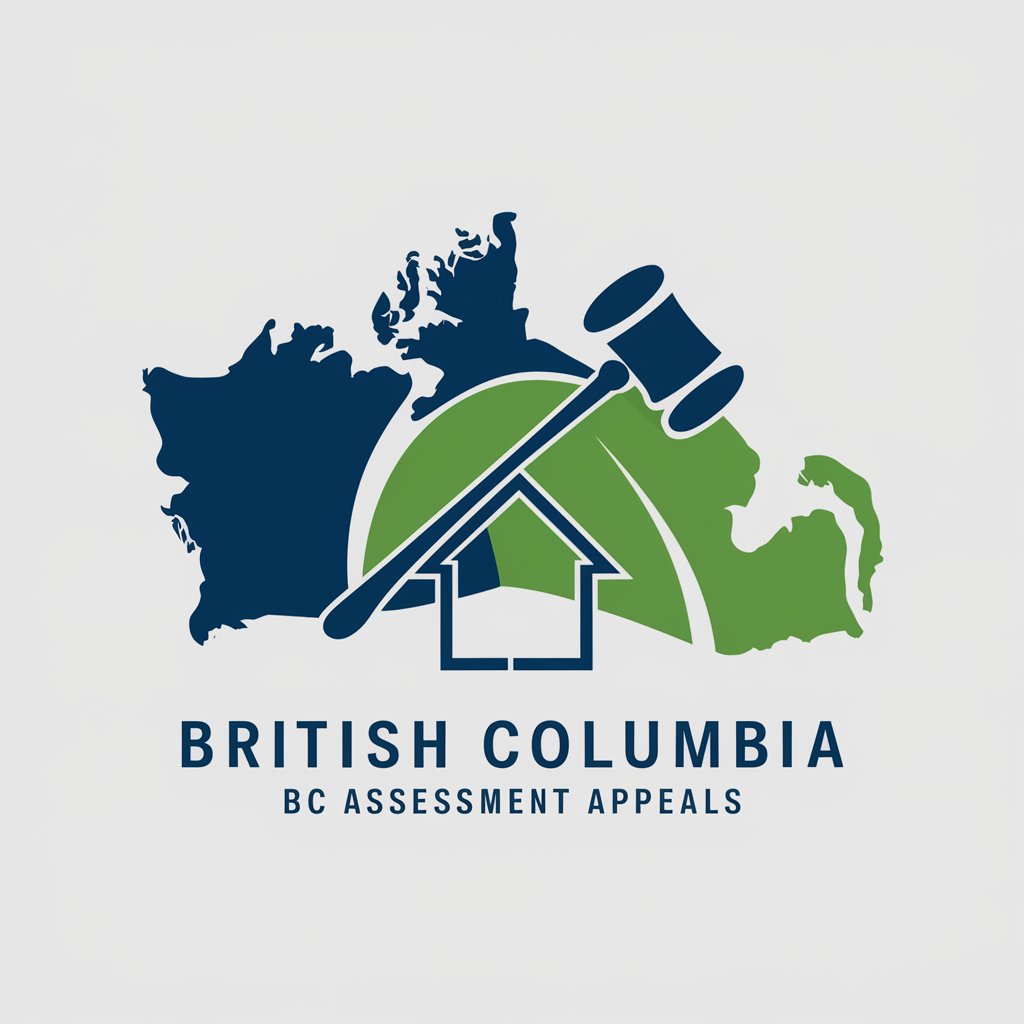
Appeal UK Parking Tickets
Automating your parking appeal process

Judicial Appeals: Grounds
Navigate appeal complexities with AI
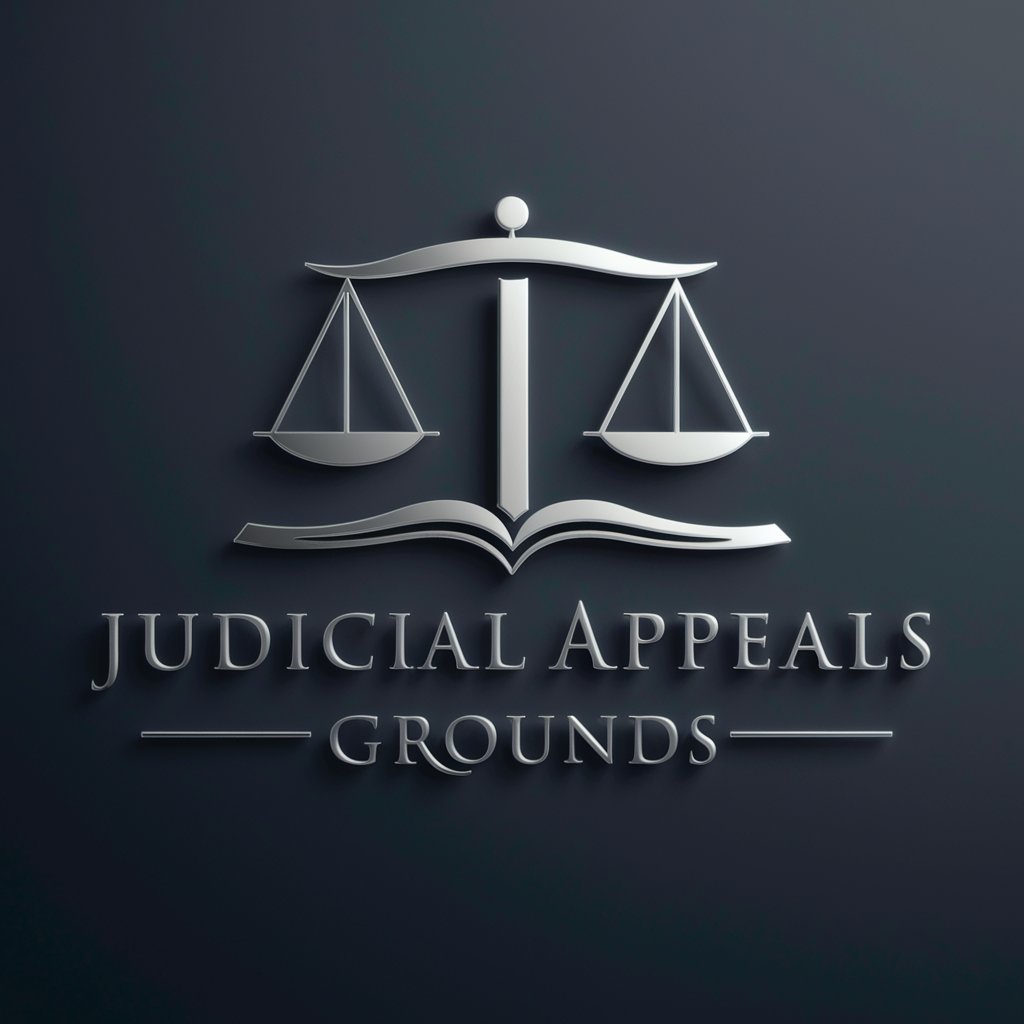
Judicial Appeals: Errors of Law
AI-powered Legal Appeal Assistant
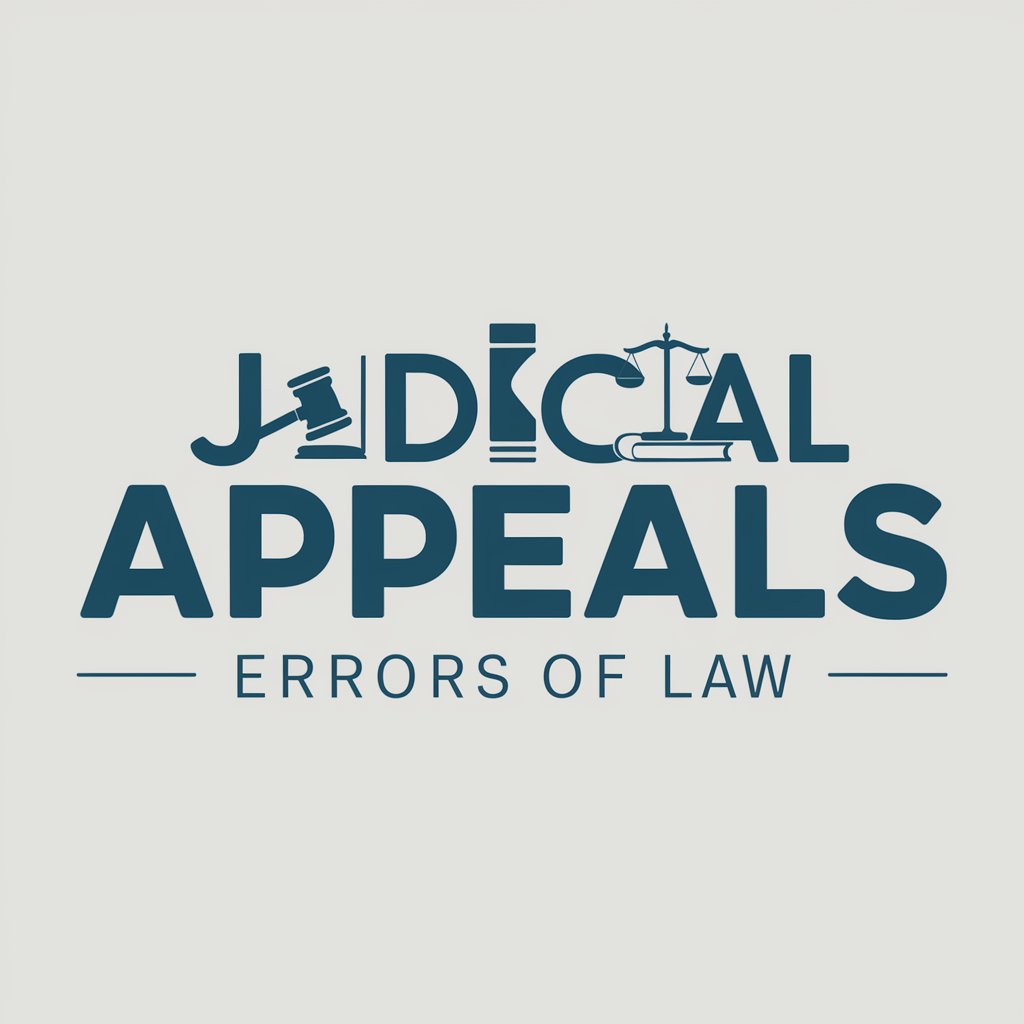
Scotty the Sprout Appeal Scribe Bot
Automate your appeal, maximize your impact.

Dansk sekretær med avanceret funktionalitet
Elevating Danish Professional and Academic Efficiency

Drop King
AI-Powered Insights for E-Commerce Success

Frequently Asked Questions about Judicial Appeals: Procedural Irregularities
What is a procedural irregularity?
A procedural irregularity occurs when the established rules, protocols, or standards of the judicial process are not followed correctly, potentially affecting the fairness or outcome of legal proceedings.
How do I prove a procedural irregularity?
To prove a procedural irregularity, identify the specific rule violated, gather evidence demonstrating the violation, compare the followed procedure against the required standard, and show how it impacted the proceedings.
Can any procedural deviation be grounds for an appeal?
Not all procedural deviations will result in an unfair outcome or prejudice. An appeal based on procedural irregularity must demonstrate significant impact on the fairness or integrity of the legal process.
How important is legal advice in appealing procedural irregularities?
Seeking expert legal advice is crucial. A legal professional can help ensure your claim is well-founded, guide you through the appeals process, and assist in presenting your case effectively.
What are the common outcomes of successful appeals based on procedural irregularities?
Successful appeals can lead to various outcomes, including a retrial, setting aside of previous decisions, or specific legal remedies tailored to address the procedural error's impact on the case.
